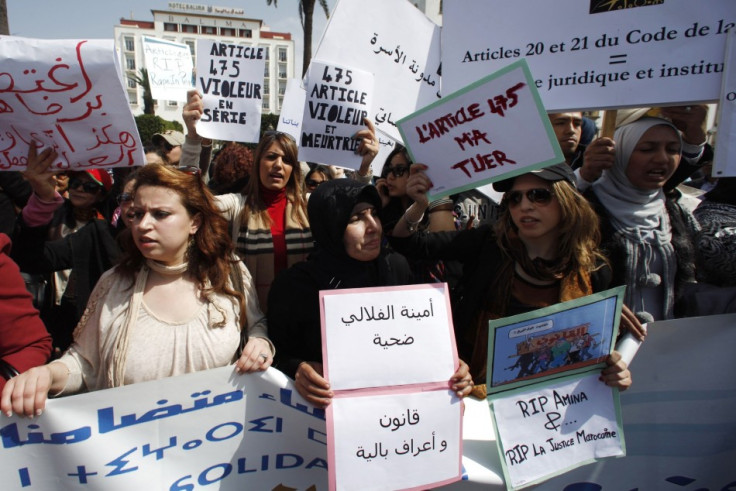Morocco: Amina Filali Parents Accuse Village of Killing Her, Husband Denies Rape

The parents of Amina Filali, the 16-year-old Moroccan girl who killed herself after she was coerced into marrying her rapist, have blamed villagers in their hometown of Khmis Sahel for her death.
Amina's mother, Zhora Bellamalem, told Reuters that villagers had pressurised them and Amina into conforming for the sake of maintaining family honour.
"I will not renounce my right in front of God and in front of the authorities," she said. "My patience ran out. There was a lot of talking in the village and in the end, my daughter died. They killed her. Shame on them. She took poison. If it was me, I would not have done it."
Amina killed herself by swallowing rat poison. A year earlier, she was raped by a man 10 years her senior and her family agreed with a civil court ruling that she should marry him in order to preserve their honour.
Her father, who later denied the claims and said they were "advised" by the prosecutor to arrange the marriage, said he was opposed to the marriage because he felt she was "too young to be responsible for a family".
"She was too young and she was studying," he said. "She told me that it was the general attorney who said they should get married. I told her that if it was the general attorney who took this decision, then it was up to him to go ahead because I did not agree with this decision.
"She told me that the judge insisted I should be present. My wife said that if I did not agree to the marriage then I would be the laughing stock of the entire village."
Amina's husband, who has finally been identified as Mustapha Fellak, rejected the rape claims.
"As far as rape is concerned, it is not true," he said. "Her mother says that I used a knife to abduct her. It is simply a lie. I had a relationship with Amina. She confirmed this in front of the general attorney in Tangiers. She said to him that she came to my place of her own will. She added that we had a relationship and that I did not take her against her will."
The Moroccoan government has said it would amend the controversial Article 475 of the law that allowed the rape to go unpunished because of the marriage.
Morocco's ministry of justice and civil liberties said the government was willing to "objectively examine this article in view of abolishing it if necessary".
© Copyright IBTimes 2025. All rights reserved.






















